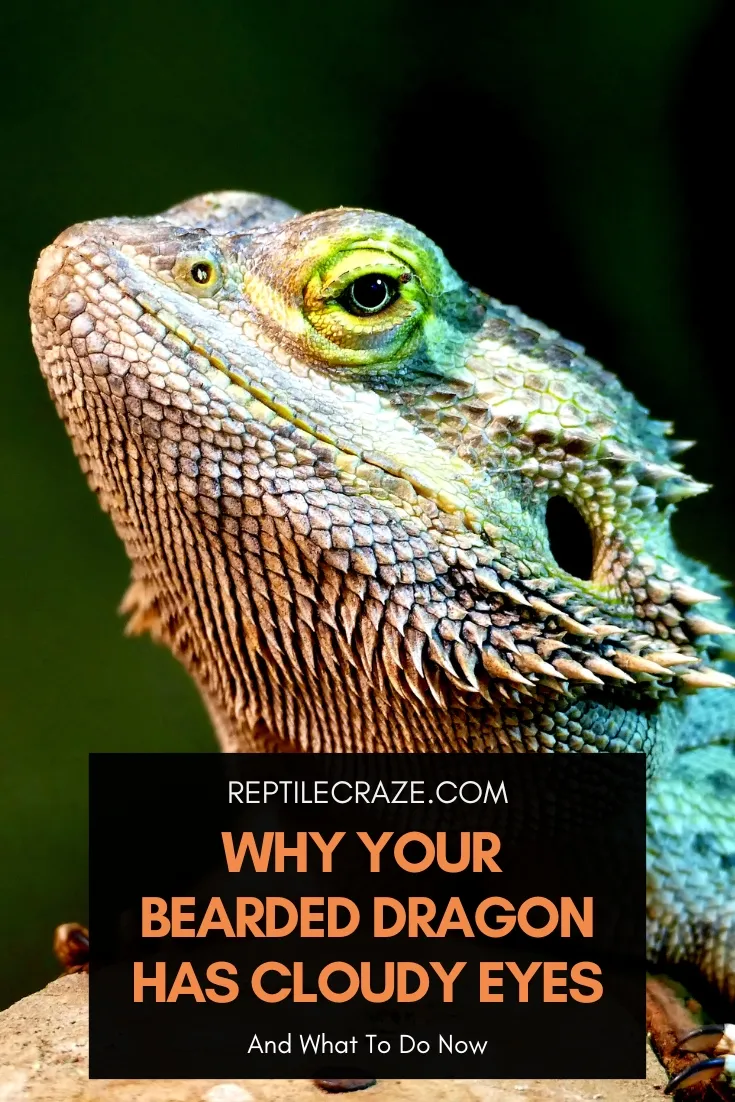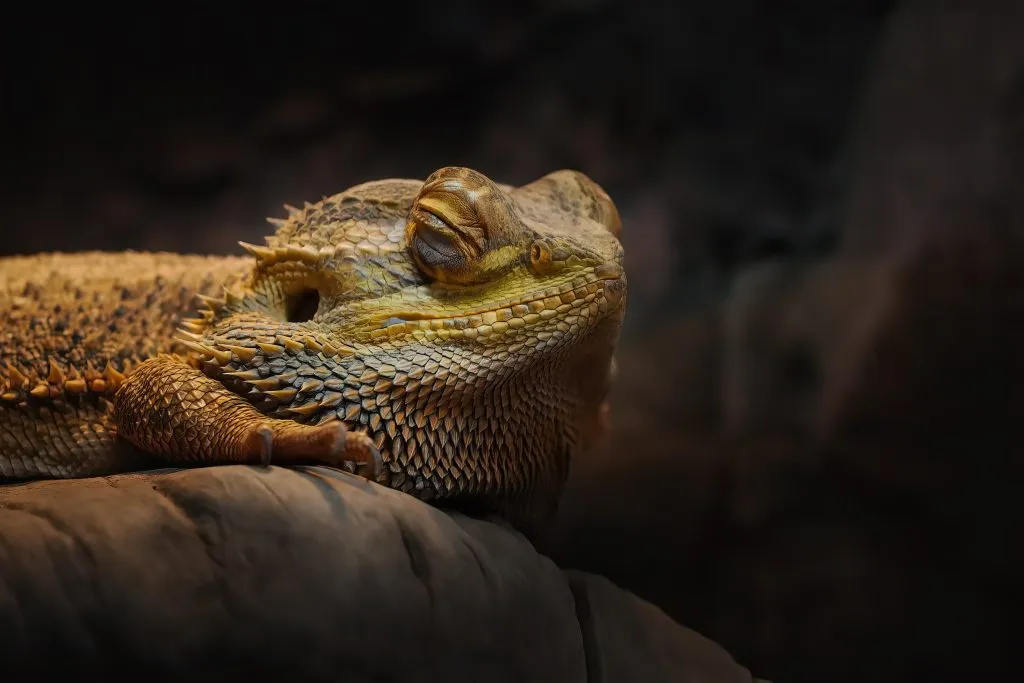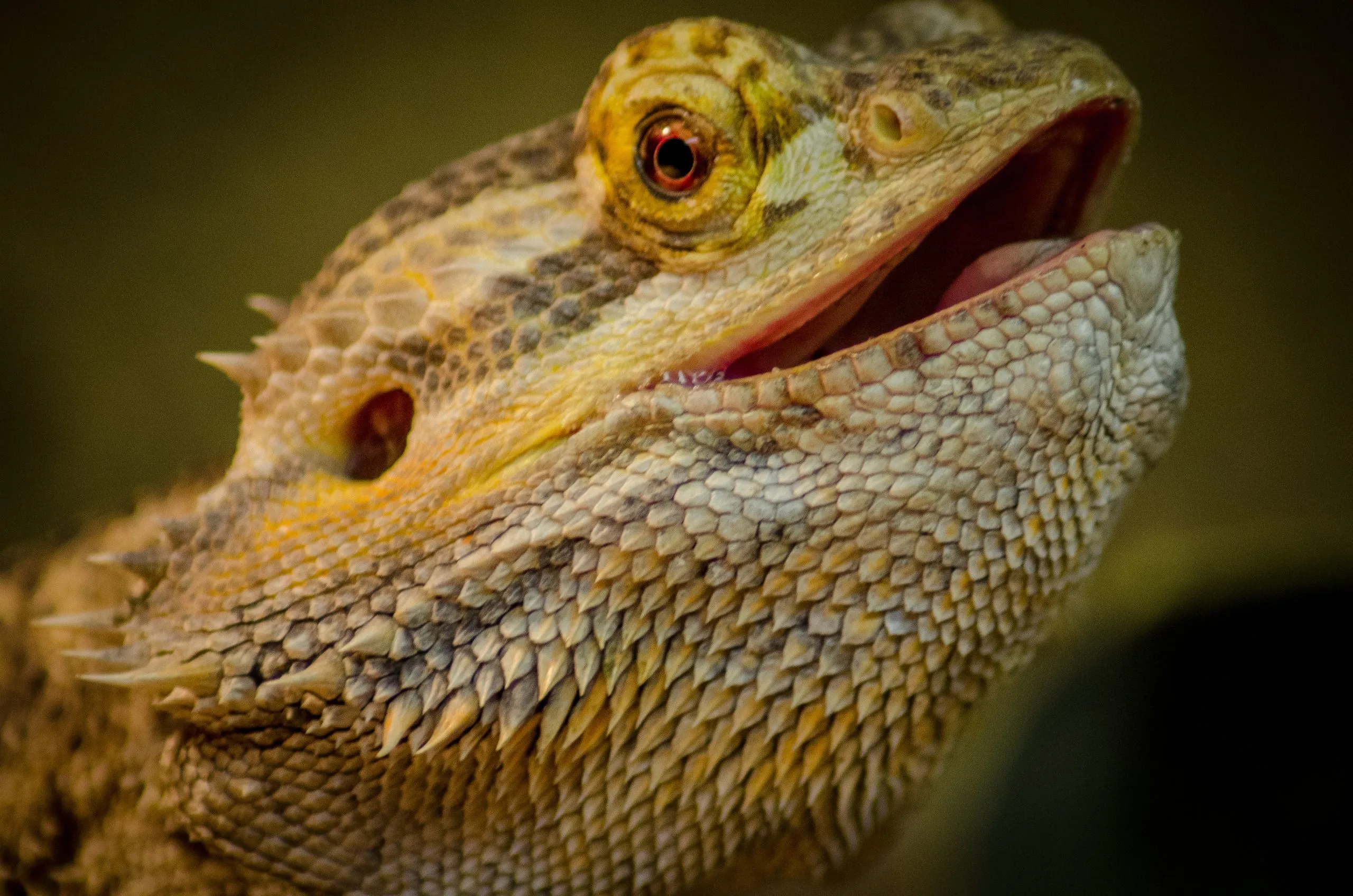
If you have a bearded dragon, then you know how important it is to keep an eye on its health and well-being. One of the most common signs of distress in bearded dragons is cloudy eyes. But why do bearded dragons get cloudy eyes?
Cloudy eyes in bearded dragons can be caused by age, an eye infection, trauma, cataracts, or a vitamin A deficiency. Cloudy eyes have to be treated by a veterinarian to eliminate the possibility of severe sickness or even death in your bearded dragon.
Of course, it’s not always easy to tell what the cause of your bearded dragon’s cloudy eyes is without consulting a vet, but there are things you can do to help. In this article, we’ll discuss the different causes of cloudy eyes in bearded dragons and what you can do about them.
Table of Contents
Why Your Bearded Dragon Has Cloudy Eyes
As mentioned above, there are many reasons why your bearded dragon may have suddenly developed cloudy eyes. Here are the most common ones.
1. Infection

Bacterial, viral, or fungal infections are typically the main culprits behind cloudy eyes in bearded dragons, particularly if the cloudiness is in front of the iris.
These infections often occur when bearded dragons are kept in poor living conditions, such as unsanitary environments or when there is not enough ventilation and humidity.
That said, some bacterial infections can also cause cloudiness behind the iris, albeit rarely. For instance, bacterial pneumonia in bearded dragons can cause uveitis, which is inflammation of the eye.
This, in turn, can result in pus developing behind your beardie’s iris, causing it to appear cloudy. The condition is called hypopyon.
The best way to diagnose and treat an eye infection is to take your bearded dragon to the vet.
Your vet will be able to assess the situation, prescribe any necessary medication, and provide advice on how to improve your bearded dragon’s living conditions.
If you suspect that your bearded dragon has an eye infection, read our eye infection guide here. We show you all the causes, symptoms and treatments there.
2. Trauma
If your beardie has recently experienced a traumatic event, such as a fall or a hit, this could also cause cloudiness in its eyes.
Bearded dragons can get an eye injury through things like rough handling, direct contact with sharp objects, or a bad fall. Eye trauma can cause the bearded dragon’s eyes to become cloudy or even swollen shut.
Luckily, in the case of trauma, the cloudiness should only be temporary and should clear up within a few days.
That said, if your bearded dragon appears to be in pain or distress, it’s important to take them to the vet for an evaluation as soon as possible.
3. Aging
As bearded dragons get older, their eyes can start to become cloudy or milky. It’s quite common and is generally not a cause for concern — many other animals, including humans, also experience cloudy eyes as they age.
This is due to our cellular processes slowly starting to decline as time passes by. Eventually, they’ll stop entirely, causing problems in our organs, including our eyes.
Beardies live for an average of 10-14 years, so it’s likely that you’ll start to see age-related cloudiness in their eyes at some point. In this case, the cloudiness should be mild and not interfere with your bearded dragon’s vision.
However, if you notice any changes in your bearded dragon’s behavior or activity level, it’s important to take them to the vet for an evaluation. Your vet will be able to diagnose the cause and provide treatment if necessary.
4. Cataracts

Although cataracts are more common in aging beardies, younger bearded dragons can develop them as well.
Cataracts cause the bearded dragon’s eyes to look thick and cloudy, and in some cases, they may even appear gray or white.
If your bearded dragon is diagnosed with cataracts, surgery may be necessary to improve its vision.
However, this is not always possible or recommended depending on the bearded dragon’s age and overall health. In this case, your vet will be able to provide advice on how to keep your bearded dragon comfortable.
5. Vitamin A Deficiency
A lack of Vitamin A in bearded dragons can cause cloudy eyes. This is because Vitamin A plays a vital role in maintaining healthy tissue and organs, including the eyes.
Other symptoms can include swollen eyes, respiratory problems, and unusually slow growth.
To prevent this, a bearded dragon’s diet should include plenty of Vitamin A-rich foods, such as dark leafy greens, sweet potatoes, and squash.
You should also make sure your bearded dragon has access to natural sunlight or UVB lighting, as this is essential for their overall health.
Tip: Read our guide on the best UVB lights for bearded dragons here!
Conclusion
No matter the cause, cloudy eyes in bearded dragons can understandably be alarming for pet owners.
That said, it’s important to remember that cloudy eyes in bearded dragons can be caused by a variety of factors, including infections, trauma, diseases, deficiencies, and even normal aging.
The best thing to do is to always keep an eye on your bearded dragon’s behavior or appearance so you can spot any changes in their health and well-being!
- Enchi Ball Python: A Unique and Stunning Morph of Python regius - March 27, 2025
- Emerald Tree Monitor: The Enigmatic Green Guardian of the Rainforest - March 26, 2025
- The Egyptian Cobra (Naja haje): A Fascinating Serpent - March 25, 2025
